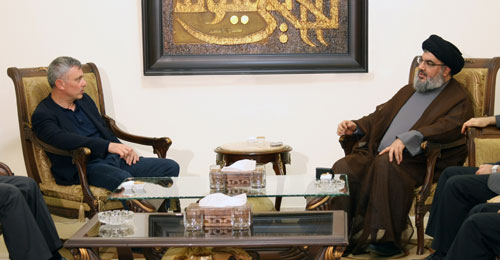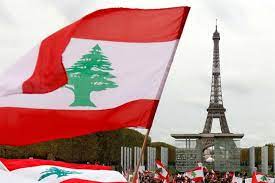By Ya Libnan Editorial board
Conflicting reports and conspiracy theories continue in Lebanon over Marada Movement leader Suleiman Franjieh’s visit to Paris and his meeting there with the advisor of the French president
Some reports are speculating that :
The French leaders will tell Franjieh , sorry , we tried our best to make you the president but our best was not good enough , stressing that the election of a partisan president is almost impossible.”
According to the same report Hezbollah has been put in the picture of the visit and agreed to back the French position in order to avoid any embarrassment .
Also , according to the report , Progressive Socialist Party leader Walid Jumblatt visited Paris earlier to explain “the difficulty of Franjieh’s election as president because his loyalty is only to one group of Lebanese .”
“Jumblatt urged the French to seek consensus over another, centrist figure with financial and economic background.”

Other reports are speculating that France which is considered a big supporter of Franjieh has invited him to Paris to discuss with him his public pledges such as picking a PM , the Syrian refugees, border control, the political-economic-financial reform agenda, and the pledges he can obtain from Hezbollah and Syrian President Bashar al-Assad over the issues of refugees and border demarcation.”
The problem for Franjieh is twofold: Until now he doesn’t have a majority in parliament that would allow him to win an election, and he is opposed by the three main Maronite Christian parties, which would deny him any communal legitimacy, since presidents come from the Maronite community.
According to political observers, even in the unlikely chance that Franjieh ( a key ally of Hezbollah and the Syrian regime) could be voted into office, his term would be highly contentious because of hostility from within his community.
It is true that Lebanon gained independence from France in 1943, but the country has faced numerous challenges and conflicts throughout its history that have affected its political system and governance.
The divide and rule confessional system has been criticized for promoting sectarianism and hindering the country’s progress. It has led to political polarization, corruption, and a lack of accountability, which has contributed to the country’s economic and social challenges. The system has resulted in a fragmented political landscape, with various groups competing for resources and influence. This has also fueled tensions among different communities, leading to violence and instability.
To achieve self-governance, Lebanon needs to move beyond the sectarian-based system and promote a more inclusive political process. This requires political will and a genuine commitment to national unity, as well as a focus on economic and social development that benefits all communities. A collaborative and inclusive approach can help to bridge the divides and ensure that all citizens are represented and have a stake in the country’s future.
The selection of leaders in Lebanon is a complex process that is influenced by a variety of factors, including sectarianism, political factions, and regional dynamics. While external powers, including France, may have some influence in Lebanese politics, it is ultimately up to the Lebanese people and their political representatives to determine their own leaders. However, there are a number of challenges that have made it difficult for Lebanon to achieve true independence and autonomy in its political decision-making processes. These challenges include historical legacies of foreign intervention and influence, ongoing sectarian divisions, corruption and political gridlock, and regional power struggles.
In order to overcome these challenges and achieve greater independence in its political decision-making processes, Lebanon may need to undertake significant reforms and address longstanding issues such as sectarianism, corruption, and political gridlock.
These reforms could involve changes to the electoral system, increased transparency and accountability in government, and efforts to reduce external interference and influence in Lebanese politics. Ultimately, the ability of the Lebanese people to select their own leaders without foreign interference will depend on a combination of domestic and international factors, including political will, institutional reform, and diplomatic efforts to support Lebanon’s sovereignty and independence.
Specs required of new president
Here are some general guidance on what qualities and characteristics may be desirable in a leader who seeks to unite a divided country like Lebanon.
First and foremost, a unifying leader should have a strong commitment to inclusivity, seeking to represent and serve all segments of society, regardless of political affiliation, religious or ethnic background, or other differences. The leader should work to build bridges between different communities, fostering dialogue, understanding, and cooperation.
In addition, a unifying leader should be honest, transparent, and accountable, taking responsibility for their actions and seeking to address the concerns and grievances of all citizens. They should prioritize the needs of the country and its people above their own personal or political interests.
A unifying leader should also be skilled in communication and diplomacy, able to engage with different stakeholders, listen to diverse perspectives, and find common ground. The leader should be adept at navigating complex political and social dynamics, and be able to mediate conflicts and negotiate solutions that benefit all parties.
Ultimately, the key to uniting a divided country is to promote a shared sense of national identity and purpose, based on values such as democracy, human rights, and the rule of law. A unifying leader should embody and promote these values, working to create a vision for the future that inspires and unites all Lebanese people.


Leave a Reply
You must be logged in to post a comment.